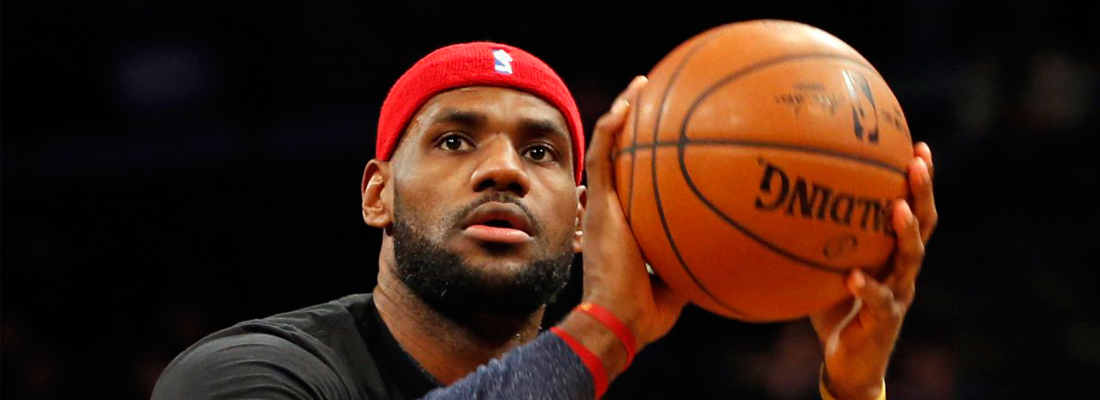This past summer, when NBA superstar LeBron James announced that he was returning “home” to play for the Cleveland Cavaliers, he wrote an essay to express why he decided to return “home.” LeBron wrote, “I was a kid from Northeast Ohio. It’s where I walked. It’s where I ran. It’s where I cried. It’s where I bled. It holds a special place in my heart. People there have seen me grow up. I sometimes feel like I’m their son. Their passion can be overwhelming. But it drives me. I want to give them hope when I can. I want to inspire them when I can.”
When he wrote those words in July of 2014, I’m sure LeBron—along with the rest of society—never imagined that Tamir Rice would be murdered by police officers in that very same place a few months later. Now, six months later, that same area LeBron claims “holds a special place” in his heart, has become one of the latest example of a long history of police brutality against the black community, and LeBron has remained silent about Tamir Rice.
LeBron released a statement after a judge in Cleveland constitutionally justified police officer Michael Brelo’s and his colleagues’ actions in shooting Timothy Russell and Malissa Williams 137 times, for absolutely no reason. (No, like really, the officers claimed they saw something black in Timothy Russell’s hand. Turned out to be his hand.) Of course, LeBron expressed his support for protesters and his displeasure with the injustice of America. That’s what anyone with a conscience would do, right? Yeah, and we also live in a post-racial society.
“I was a kid from Northeast Ohio. It’s where I walked. It’s where I ran. It’s where I cried. It’s where I bled…”
Instead, what happened is what has become too common and the norm: black faces being used to maintain order in black communities. LeBron urged that the already peaceful protesters remain peaceful; he said, “Violence is not the answer, and it’s all about trying to find a solution for good or for bad.” He didn’t stop there, though.
Yes, it gets worse. “Sports just does something to people. Either if [sic] you’re a player, you’re a fan, you just have something that has anything to do with that city, you just feel a certain way about rooting for a team that you love. And it can get your mind off some of the hardships that may be going on throughout your life or in that particular time and period. It just does that.” Let me be the first to convey this message to LeBron, “Sorry, my man. Tamir Rice can’t enjoy your game.”
LeBron James has every right as an individual not to participate in the demonstrations and rallies. But what ever happened to athletes like Muhammad Ali, people who sacrificed public opinion and spoke truth to power? Sure, LeBron James wore a T-shirt in support of Eric Gardner and where the movement was at that point in time, but we’re far past the T-shirt phase. As Minister Louis Farrakhan recently put it, we are at the “Justice or Else” phase, and for some of us, that’s more than just a phrase. It’s more than a hashtag. It’s life.
But what ever happened to athletes like Muhammad Ali, people who sacrificed public opinion and spoke truth to power?
Many people might ask, “Why single out LeBron James?” And I will admit that Cleveland native Steph Curry is equally responsible, being that he just happens to be the superstar of Oakland’s NBA team, the Golden State Warriors. We all know how bad the Oakland police are. I mean, Anthony Batts was their commissioner, and we see how police act under his watch.
I’m challenging LeBron James because he decided to use his platform to preach the message of peace to the wrong people. The moment LeBron allowed himself to be used as a puppet for order, he missed the opportunity to use his platform to send a message to America.
Aye, LeBron, you know your sponsor company Nike gave discounts to the police, who can afford to buy your ridiculously expensive shoes, while Tamir Rice’s mother was going through hardships just to try to make ends meet, much like what your own mother went through. But take it from me, LeBron, employers really don’t appreciate when you speak out against the system that benefits them. The difference between you and me: your voice has a platform to mean something. There are millions of young black men that hoop everyday in hopes of being where you are, waiting for the chance to make a statement. Imagine the impact it would have if you went out (without the cameras) and stood with the protesters. The same way you would go out with the people and bike to the arena in Miami, walk with the people in your hometown.
The clock is winding down; we need you to take the shot. Speak up.
Silence is consent.
